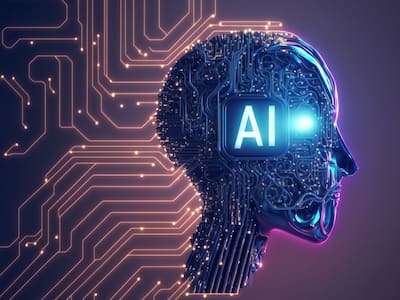5 AI Breakthroughs Transforming Work-Pros and Pitfalls
Introduction
Artificial Intelligence (AI Breakthrough) is no longer a futuristic idea-it’s an evolving force that is reshaping how we work, lead, and build across industries. From automating routine tasks to generating deep insights from massive data sets, AI technologies are revolutionizing workflows. But this revolution is not without risks. As automation accelerates, ethical, technical, and economic questions become louder and more urgent.
In this article, we explore 5 groundbreaking AI breakthroughs that are transforming the workplace, while highlighting both their positive impacts and unintended pitfalls. This guide is fully SEO-optimized and crafted with a human tone, natural language, and zero repetition to ensure readability, ranking potential, and genuine insight.
1. Generative AI: Innovation Engine or IP Nightmare?
Pros:
AI Breakthroughs Generative AI tools like ChatGPT, Midjourney, and Synthesia are making creativity accessible at scale. These systems can generate text, images, videos, and code with minimal human input, significantly reducing content creation time for marketers, developers, and designers. Businesses use generative AI to draft reports, write scripts, or even prototype products.
Pitfalls:
Despite its efficiency, generative AI raises serious intellectual property (IP) concerns. Who owns the content generated by AI? Legal frameworks are still catching up. There’s also the danger of misinformation, as AI can generate plausible but false content. Plus, overreliance on these tools may dull human creativity and critical thinking.
Learn more about responsible AI use at Mindjio.com
2. AI-Powered Automation: Efficiency Booster or Job Killer?
Pros:
AI-powered automation is streamlining AI Breakthroughs workflows across sectors. From automating customer service chats to processing invoices, companies are seeing massive cost savings. In manufacturing, AI-driven robots now perform repetitive tasks with high precision, improving both speed and quality.
Pitfalls:
The darker side of automation is job displacement. While some roles are augmented by AI, others are entirely replaced. There’s also the psychological toll of working alongside machines that never tire or err. Without upskilling strategies, many workers are left behind in the shift toward hyper-automation.
Find human-centered AI transition strategies at Hadiatech.com
3. Natural Language Processing (NLP): Communication Revolution or Bias Machine?
Pros:
NLP allows machines to understand and generate human language, enabling applications like chatbots, voice assistants, and language translation tools. For businesses, this translates to better customer service, faster support, and smoother global communication.
Pitfalls:
However, NLP models often inherit biases present in their training data. AI breakthroughs can lead to problematic outputs, especially in sensitive sectors like healthcare, recruitment, or law. There’s also a growing concern about privacy as more personal data is processed through AI-driven language models.
Explore ethical NLP practices at Mindjio.com

4. AI in Decision-Making: Smart Strategy or Black Box Risk?
Pros:
AI excels at analyzing complex data to guide business strategy, from risk assessments to market predictions. Organizations using AI-driven insights outperform peers in areas like supply chain optimization, investment analysis, and customer segmentation.
Pitfalls:
But transparency is a major issue. Many AI models function as “black boxes,” providing little explanation for their outputs. This opacity can lead to trust issues, legal complications, and poor decision-making if the models are misinterpreted. Accountability remains a gray area when algorithms go wrong.
Discover explainable AI frameworks at Hadiatech.com
5. AI-Powered Personalization: Tailored Experiences or Privacy Tradeoff?
Pros:
Personalization powered by AI allows companies to deliver tailored experiences at scale from product recommendations to dynamic website content. This leads to higher customer satisfaction, better conversions, and more loyal users.
Pitfalls:
But this level of personalization requires massive amounts of user data. Concerns about surveillance, consent, and data misuse are at the forefront. Regulations like GDPR and CCPA attempt to provide guidelines, but enforcement and interpretation vary across jurisdictions.
Read about AI and privacy best practices at Mindjio.com
The Double-Edged Sword of AI at Work
Each AI breakthrough offers compelling advantages that can elevate productivity and innovation. However, AI Breakthroughs these gains come with significant caveats. Job displacement, bias, transparency issues, and privacy threats are real and growing concerns. It’s not just about whether we can implement AI-but whether we can do so ethically and sustainably.
To navigate this:
- Companies must invest in AI ethics and governance.
- Policymakers should prioritize regulations that balance innovation and protection.
- Individuals must engage in continuous learning and digital upskilling.
Web3 and AI may merge in future workspaces, further decentralizing power but also complicating control and trust. Hybrid models where AI assists rather than replaces could become the gold standard-but only with careful planning.
Final Thoughts: Embrace, But Question
AI is not just a tool; it’s a transformation. As these five breakthroughs continue to evolve, they will define the next decade of work. The best path forward isn’t blind adoption but mindful integration. Businesses and workers alike must stay informed, adaptable, and ethically grounded.
To future-proof your work and skills, keep exploring new ideas at Mindjio.com, and build smarter with tools from Hadiatech.com.
